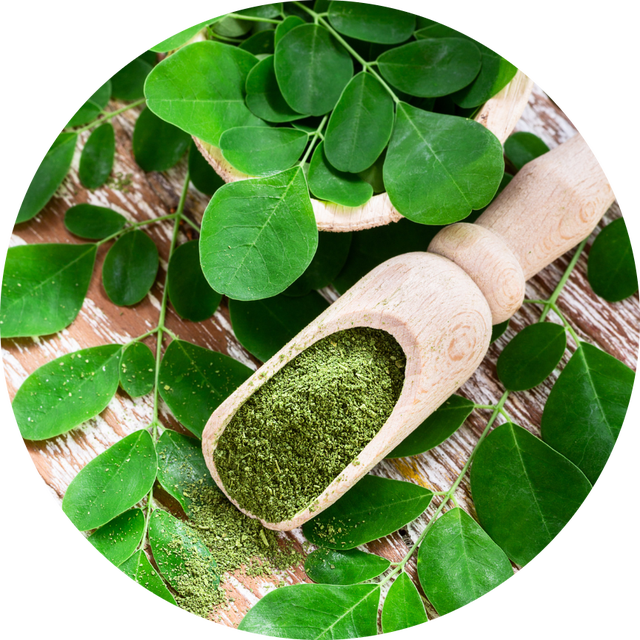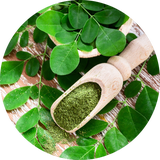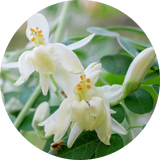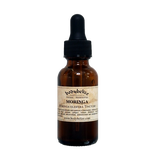- PLANT MEDICINE
- >
- Tinctures
- >
- MORINGA TINCTURE
MORINGA TINCTURE
Family: Moringaceae
Genus: Moringa
Species: Moringa oleifera Lam.
Synonyms: Drumstick tree, Horseradish tree
Common Names: Moringa, drumstick tree, horseradish tree, ben oil tree
Parts Used: Leaves, seeds, pods, roots, flowers
Main Actions: Nutrient-rich, antioxidant, anti-inflammatory, antimicrobial, hepatoprotective
Other Actions: Antidiabetic, anticancer, analgesic, immunomodulatory
Description: Moringa is a fast-growing, drought-resistant tree native to parts of Asia and Africa. It has feathery foliage and produces long, slender pods containing edible seeds.
Tribal and Herbal Medicine Uses: Traditionally used to treat malnutrition, arthritis, digestive issues, and skin conditions. In tribal medicine, it's applied for various ailments including diabetes, hypertension, and infections. It other benefits include:
- immunity booster
- energy booster
- improves eyesight
- protects liver, heart and other organs
- aids in preventing cancer
- antibacterial properties
- treats asthma and anemia
- anti-inflammatory
- slows the aging process
- balances hormones
- improves libido
Plant Chemicals: Rich in vitamins (A, C, E), minerals (calcium, potassium, iron), flavonoids, phenolic acids, and glucosinolates.
Biological Activities and Clinical Research: Studies suggest its potential in managing diabetes, reducing inflammation, and fighting infections. Clinical research highlights its antioxidant properties and potential anticancer effects.
Current Practical Uses: Widely used in nutritional supplements, herbal teas, and skincare products.
Main Preparation Method: Leaves commonly consumed fresh or dried, seeds often crushed for oil extraction, and pods cooked as vegetables.
Main Uses: Nutrition supplementation, culinary ingredient, herbal medicine.
Properties/Actions Documented by Research: Antioxidant, anti-inflammatory, antimicrobial, hepatoprotective.
Other Properties/Actions Documented by Traditional Use: Antidiabetic, anticancer, analgesic, immunomodulatory.
Cautions: Limited evidence on safety in pregnancy and breastfeeding; excessive intake may lead to gastrointestinal upset.
Traditional Preparation: Leaves brewed into tea, pods cooked in soups or curries, seeds crushed for oil extraction.
Contraindications: Not recommended for pregnant or breastfeeding women without medical advice.
Drug Interactions: Potential interactions with medications for diabetes and blood pressure; consult healthcare provider if using medications concurrently.
“The Miracle Tree”, as it is known in India, is miraculous indeed. This plant has so many healing and nutritional benefits that scientists have barely scratched the surface in recent studies. The nutritional content alone is worth looking at, as it is rich in almost all the major vitamins, enzymes and minerals. It also has a high protein content. In effect, it is unsurpassed in nutritional value!
Moringa in tincture form concentrates the benefits to greatly increase the potency of this miraculous plant!
Recommended dosage: 5ml - 20ml taken in a small glass of water or juice 1 or 2 x daily on an empty stomach for better absorption.




